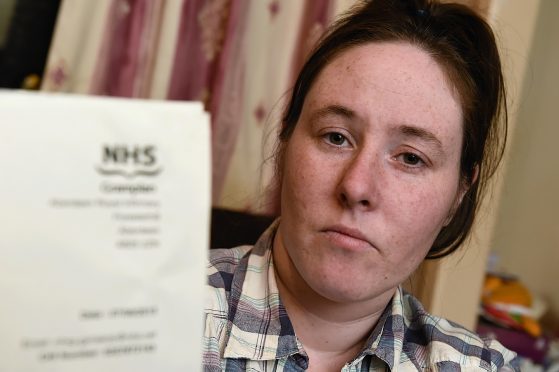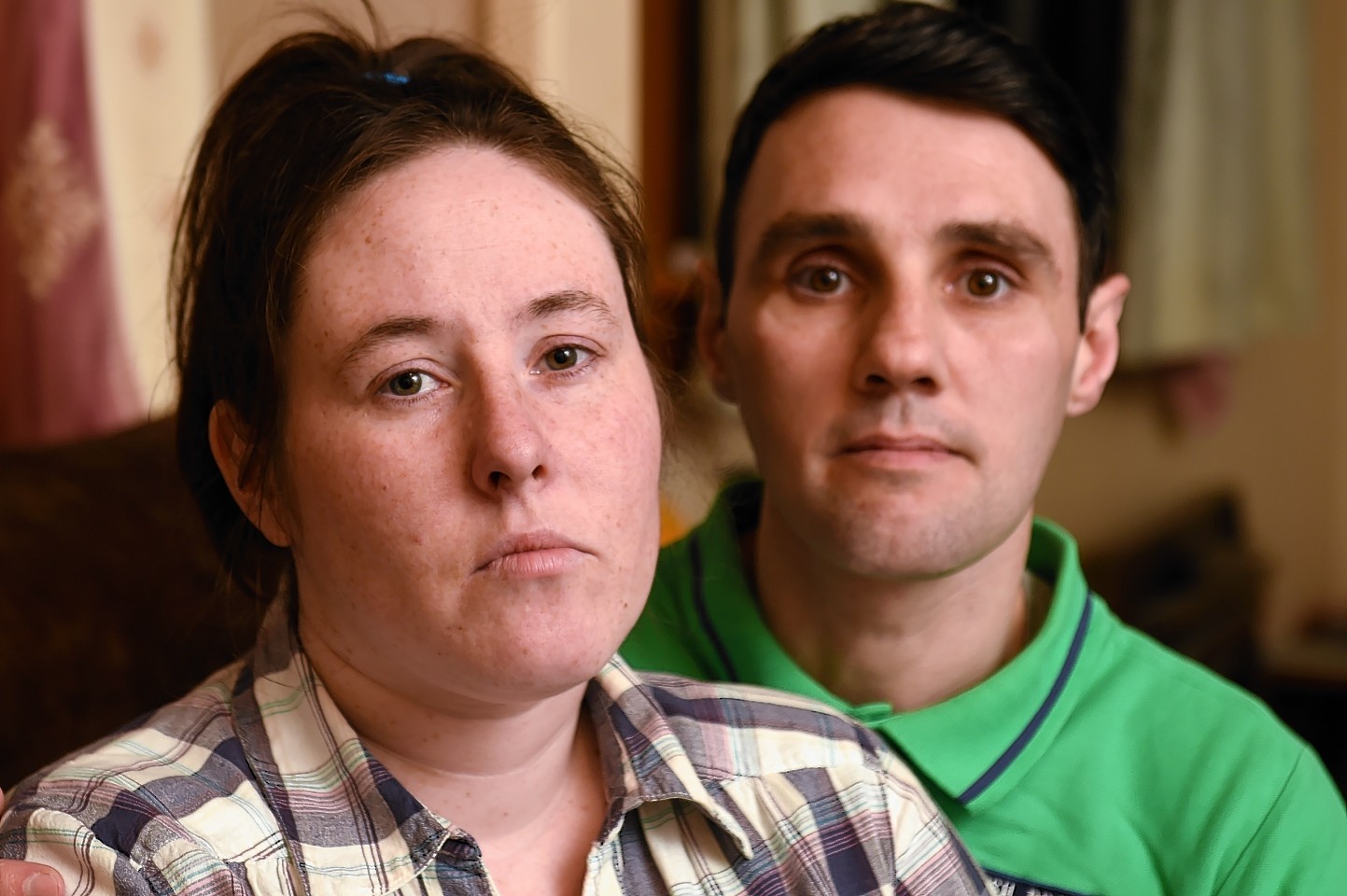A woman who was told she had cancer has demanded an apology from health chiefs – after it emerged she had a virus instead.
Jayme Rattray was given the devastating diagnosis after going to see the doctor, who urgently referred her case to specialists in Aberdeen.
The 28-year-old, of New Pitsligo, feared the worst and with a heavy heart told her loved ones – including her five-year-old nephew – she was facing a battle with the life-threatening disease.
Last night Miss Rattray, who suffers from general anxiety disorder, admitted she had been so distraught at the news she had self-harmed.
But when she met with a gynaecologist six months later, she was told that there had never been any signs of cancer.
She said: “I went to the doctor in November 2012, and not long after got an urgent call from the dermatologist.
“They told me the results were back and turned the computer screen around for me to look myself. I looked at him and said “so it’s cancer?” and he nodded his head.”
But despite a series of appointments at Aberdeen Royal Infirmary over the following weeks, it was not until March 2013 that Ms Rattray got the “slap in the face” news she had been misdiagnosed.
“Eventually I got an appointment on Thursday March 14 and that’s when I was supposed to go in and get a full body scan and a map biopsy,” she said. “But when I went in the gynaecologist asked ‘Do you know why you’re here?’ and I replied ‘Yes, I’ve got cancer’.
“That’s when she said ‘I don’t know who told you that but you certainly don’t have cancer’.”
In fact, Miss Rattray was suffering from the human papilloma virus (HPV), a treatable condition which can, if left unchecked, be a precursor to cervical cancer.
And although relieved, she believes she is owe an apology from NHS Grampian for the six month of “hell” she and her family was put through.
She has complained to the health board, but is now speaking out after health chiefs said they were unable to proceed with the matter as it was outwith their six-month time period.
Miss Rattray, who lives with her partner Malcolm Campbell, is also eager to raise awareness of the perils of misdiagnosis – arguing if someone was wrongly told they did not have cancer, the consequences could be far more serious.
“Not one person has tried to apologise, no one has taken it on, no one is speaking about it,” she said. “They told me I’d left it too late to complain but I gave a reason – my mental health.
“I’m still left thinking ‘what if it is cancer?’ This is imprinted on my mind. With my mental health, I had to go through gruelling days with general anxiety disorder and it was just hell. I break down when I see cancer adverts on TV.”
Miss Rattray said telling her then five-year-old nephew she had been diagnosed with cancer was one of the hardest things she has ever had to do and that the saga still deeply affects her family.
“I’m not looking for much – I’m looking for a written apology to myself and my partner admitting they were wrong and reassuring me,” she added.
“They’re not getting away with this. If it happens to somebody else and they don’t live through it, I’m going to have that on my conscious because I didn’t act upon something.”
A spokeswoman for NHS Grampian said she could not comment on the details of Ms Rattray’s case but advised the health service has a time limit for all complaints to be made.
She said: “Normally, complaints must be made within six months of the event being complained about, or within six months of finding out that there is a reason to complain – but no longer than 12 months after the event.
“However, if an individual feels the time limit should not apply to their complaint, the can speak to the feedback department again. A complaint can, in certain circumstances, be accepted after the time limit.”
The spokeswoman added that Miss Rattray can take her case to the Scottish Public Services Ombudsman.

